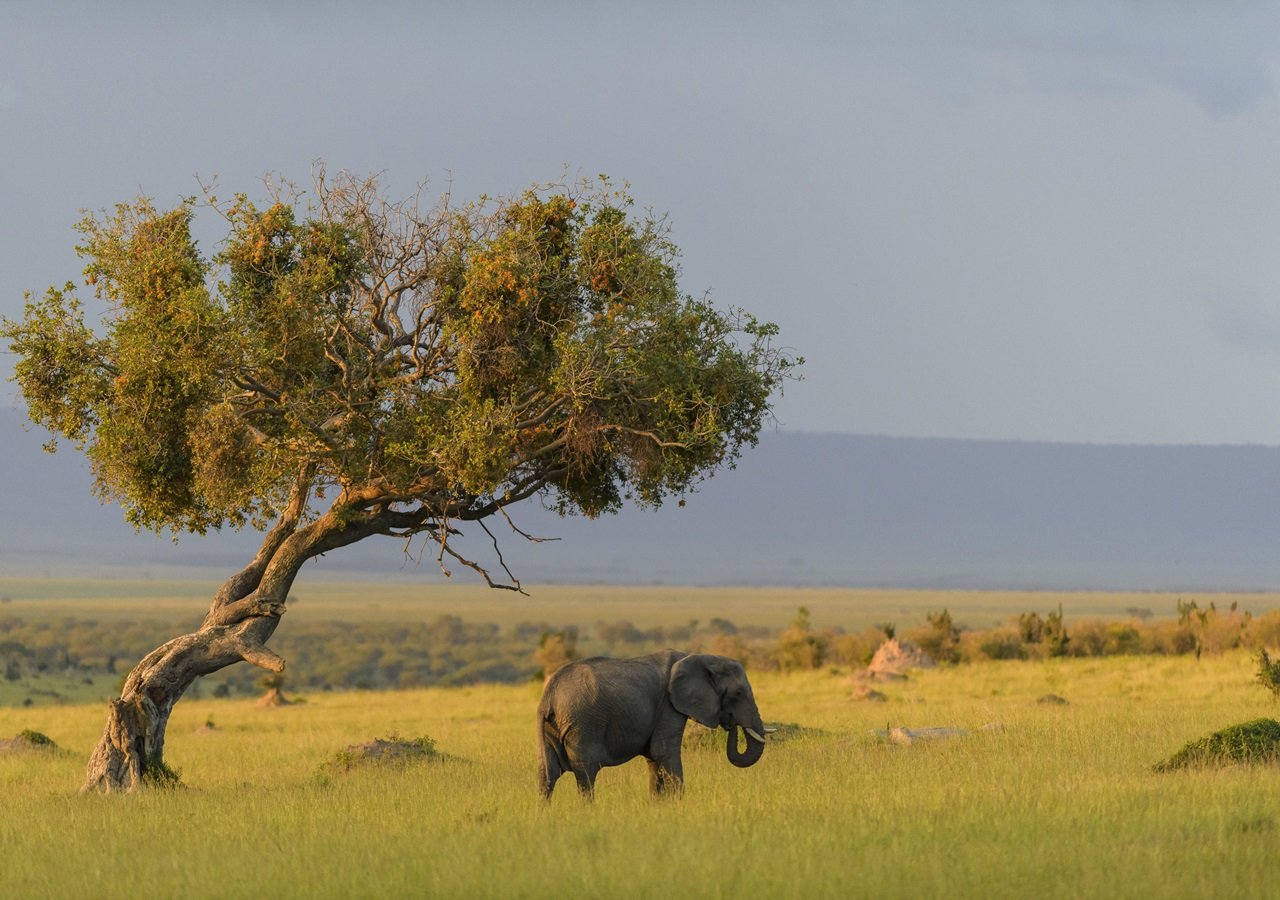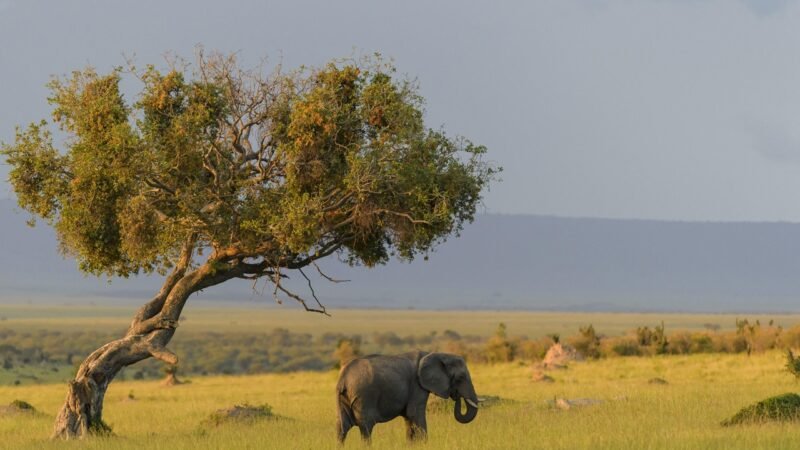Tanzania Eco-Tourism 2025

Tanzania Eco-Tourism 2025: Sustainable Safaris and Cultural Adventures
Tanzania, a haven of iconic wildlife and stunning landscapes, is leading the way in eco-tourism, offering travelers a chance to explore its natural and cultural wonders responsibly. From the Serengeti’s vast plains to the Ngorongoro Crater’s biodiversity, Tanzania combines thrilling safaris with sustainable practices that protect its ecosystems and empower local communities. In 2025, new eco-lodges, conservation-focused tours, and community-led initiatives make it an ideal destination for environmentally conscious travelers. This Tanzania eco-tourism guide for 2025 highlights the best sustainable activities, accommodations, and tips for a green adventure. Discover Tanzania’s wild heart while leaving a positive impact!
Why Tanzania for Eco-Tourism in 2025?
Tanzania’s commitment to conservation and community empowerment makes it a top eco-tourism destination. Its national parks and cultural heritage sites offer low-impact adventures that support wildlife preservation and local livelihoods. In 2025, new solar-powered lodges, eco-friendly safari operators, and expanded conservation programs ensure a sustainable yet thrilling experience.
Key Highlights for 2025:
- New eco-lodges with renewable energy and waste management systems.
- Conservation-focused tours supporting wildlife and community projects.
- Enhanced eco-trails and sustainable cultural experiences in Tanzania’s parks and villages.
Top Eco-Friendly Accommodations
Tanzania’s eco-lodges combine comfort with sustainability, using solar power, rainwater harvesting, and local sourcing to minimize environmental impact.
- Sanctuary Swala Camp (Tarangire) ($400–$800/night): Luxury tents with solar power and water recycling, supporting elephant conservation.
- Serengeti Green Camp ($150–$300/night): Mid-range eco-camp with composting toilets and community employment programs.
- Ngorongoro Wild Camp ($200–$400/night): Eco-friendly lodge with zero-waste initiatives and Maasai-led conservation projects.
- Meru Eco-Lodge (Arusha National Park) ($100–$200/night): Budget-friendly with solar energy and local sourcing.
- Asilia Jabali Ridge (Ruaha) ($500–$900/night): High-end lodge with renewable energy and wildlife monitoring programs.
Booking Tip: Reserve 6–12 months in advance via eco-certified operators like Asilia Africa or direct lodge sites.
Pro Tip: Look for certifications like EcoTourism Africa or Green Globe for verified sustainability.
Top 8 Eco-Tourism Activities
These activities offer sustainable ways to explore Tanzania’s wildlife, landscapes, and cultures while supporting conservation.
1. Eco-Safari in the Serengeti
The Serengeti National Park, home to the Great Migration (January–March for calving, June–October for river crossings), offers eco-friendly safaris ($200–$400/day) with operators like Asilia Africa. Low-emission vehicles and small group sizes reduce impact, while proceeds fund anti-poaching efforts. In 2025, new walking safaris ($250–$500/day) will emphasize conservation education.
Why It’s Sustainable: Supports wildlife protection with minimal environmental footprint.
Tip: Choose operators with carbon offset programs.
2. Ngorongoro Crater Conservation Tour
The Ngorongoro Crater, a UNESCO site, is a biodiversity hotspot with rhinos and lions. Eco-tours ($250–$500/day) with Tanzania Eco Safaris include conservation talks and visits to Maasai-led projects protecting the crater. New 2025 programs will support reforestation and wildlife monitoring.
Why It’s Eco-Friendly: Funds habitat preservation and community initiatives.
Cost: Park fees $60–$80/adult; tours $250–$500.
Tip: Bring binoculars to observe wildlife without disturbing habitats.
3. Walking Safari in Arusha National Park
Arusha National Park, near Arusha, offers eco-friendly walking safaris ($80–$150/day) with Tanzania Eco Tours. Guided hikes through forests and lakeshores showcase giraffes and flamingos while using low-impact trails. In 2025, new eco-trails will fund park conservation and local guides.
Why It’s Sustainable: Low-carbon activity supporting park maintenance.
Tip: Wear biodegradable insect repellent to protect ecosystems.
4. Community-Led Maasai Village Visit
Visit Maasai villages near Arusha or Ngorongoro ($15–$30) for sustainable cultural immersion. Community-led tours with Maasai Wanderlust include dances, craft demonstrations, and conservation talks. Proceeds support local schools and clean water projects. In 2025, new women-led tours will empower Maasai communities.
Why It’s Eco-Friendly: Directly benefits local livelihoods and sustainability.
Tip: Buy crafts from villagers to support their economy.
5. Tarangire Elephant Conservation Safari
Tarangire National Park, known for elephant herds, offers eco-safaris ($200–$400/day) with EcoAct Tanzania. Tours include visits to elephant research stations, and funds support anti-poaching patrols. New 2025 eco-camps will feature solar power and wildlife-friendly practices.
Why It’s Great: Combines adventure with direct conservation impact.
Tip: Visit June–October for peak elephant sightings.
6. Ruaha National Park Eco-Safari
Ruaha National Park, a remote gem, offers sustainable safaris ($300–$600/day) with Nomad Tanzania. Low-impact game drives and boat safaris focus on protecting leopards and wild dogs. In 2025, new community partnerships will fund ranger training and habitat restoration.
Why It’s Sustainable: Supports one of Tanzania’s least-visited parks.
Tip: Book domestic flights early for cost-effective access.
7. Coffee Plantation Eco-Tour in Arusha
Explore Arusha’s coffee plantations ($20–$50) with Tanzania Eco Tours, learning about organic farming and fair-trade practices. Tours include tastings and farm-to-table lunches. New 2025 eco-tours will support local farmers and sustainable agriculture.
Why It’s Eco-Friendly: Promotes organic farming and community welfare.
Tip: Buy fair-trade coffee as a sustainable souvenir ($3–$5).
8. Lake Manyara Birdwatching Tour
Lake Manyara National Park, famous for flamingos and tree-climbing lions, offers eco-friendly birdwatching tours ($80–$150/day) with Tanzania Birding Tours. Low-impact trails and expert guides minimize disturbance. In 2025, new conservation workshops will educate visitors on protecting bird habitats.
Why It’s Sustainable: Funds park preservation and biodiversity efforts.
Tip: Bring a reusable water bottle to stay hydrated.
Practical Tips for Eco-Tourism
- Best Time to Visit: June–October for the dry season, ideal for safaris. December–February offers clear skies and fewer crowds.
- Getting Around: Book eco-safari tours ($200–$600/day) with included low-emission transport. Use domestic flights ($100–$300) from Arusha to remote parks like Ruaha. Local buses ($5–$10) are sustainable for short distances.
- Visas and Health: Tanzania requires a tourist visa ($50–$100, online). Yellow fever vaccination may be needed from endemic areas. Use mosquito repellent and bottled water.
- Cultural Respect: Dress modestly in Maasai villages and Arusha (covering shoulders and knees). Ask permission before photographing locals.
- Sustainable Travel: Choose eco-certified lodges and tours. Join conservation activities like tree planting or park cleanups. Avoid single-use plastics.
- Safety: Use licensed operators and secure valuables in urban areas or crowded markets.
Sustainable Dining
- Bush Meals: Eco-lodges like Sanctuary Swala offer sustainable bush dinners ($20–$50) with locally sourced ingredients.
- Mama’s Kitchen (Arusha): Affordable Swahili dishes ($2–$5) using local produce, reducing food miles.
- Arusha Central Market: Buy organic fruits and snacks ($1–$3) from sustainable vendors.
Pro Tip: Carry reusable cutlery and a water bottle to minimize waste.
Sample 7-Day Eco-Tourism Itinerary
Day 1: Arrive in Arusha. Stay at Meru Eco-Lodge ($150). Dine at Mama’s Kitchen ($5).
Day 2–3: Serengeti eco-safari ($600 for two days). Stay at Serengeti Green Camp ($200/night).
Day 4: Ngorongoro Crater eco-tour ($300). Stay at Ngorongoro Wild Camp ($250).
Day 5: Tarangire elephant safari ($250). Stay at Sanctuary Swala Camp ($500).
Day 6: Arusha coffee plantation tour ($30). Maasai village visit ($20). Stay in Arusha.
Day 7: Lake Manyara birdwatching tour ($100). Depart from Arusha.
Total Cost: ~$1,800–$2,300 for one person, excluding international flights.
Why Tanzania for Eco-Tourism in 2025?
Tanzania’s commitment to conservation and community empowerment makes it a leader in eco-tourism. New eco-lodges, sustainable safaris, and cultural tours in 2025 ensure your adventure supports wildlife and local communities. From tracking elephants to sipping fair-trade coffee, your trip will be thrilling and responsible.
Plan your eco-adventure now! Share your sustainable travel tips or questions in the comments, or explore our Tanzania Travel Guide 2025 for more inspiration!
About the Author: Amina Juma is a Zanzibar native and travel writer with 12 years of experience exploring Tanzania’s eco-friendly adventures. Passionate about sustainable tourism, she shares tips for responsible travel. Follow her on Instagram @ZanzibarStories.

